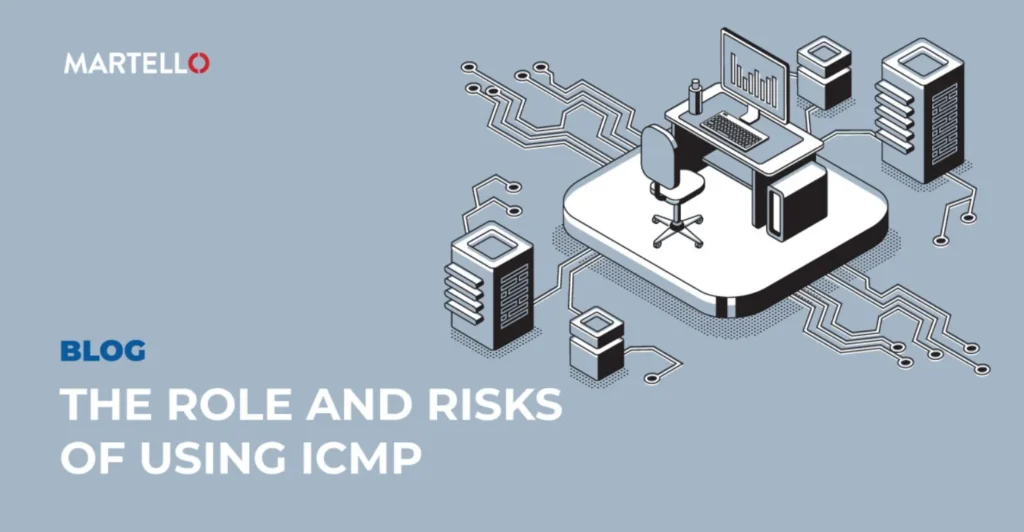What is ICMP?
As a troubleshooting protocol, ICMP announces its presence whenever a data package doesn’t arrive at its destination due to network errors. This integral role makes ICMP an unseen internet hero, averting data loss and minimizing connectivity problems that could affect user experience.
By focusing on providing feedback about the path of data transmission, ICMP enables routers and host devices to assess real-time network conditions effectively. For instance, it will signal situations such as unreachable receiving hosts, thereby alerting administrators or automated systems to potential issues. This proactive role allows for immediate corrections and routing adjustments, sustaining smooth and efficient network operations daily.
Why ICMP Matters in Networking
Over the years, the relevance of ICMP has remained significant, primarily because it empowers networks to self-heal by offering active feedback on their performance. The protocol is a vigilant overseer, continuously monitoring the data flow to ensure packets reach their intended destinations. By communicating the reasons behind failed communications to network managers, ICMP plays a crucial role in basic connectivity and optimizing network resources and efficiencies. As highlighted by industry experts, this ability prevents significant delays or breakdowns across extensive networks, especially in environments handling a vast amount of data. The Internet Control Message Protocol (ICMP) is a fundamental communication protocol under the Internet Protocol Suite, specifically designed to assist in sending error messages and operational information concerning IP-related issues.
Moreover, ICMP’s function is integral to mitigating packet loss and managing intricate network configurations that define today’s sophisticated digital landscapes. Even though it operates quietly in the background, without ICMP, the seamless, interconnected world we know would struggle under the weight of digital guesswork, slowing progress and access. For organizations, this would mean a potential breakdown in communication between internal and external entities, impacting everything from customer relations to logistical operations.
Common Applications of ICMP
ICMP’s most recognized application is network diagnostics, which shines in tools like ping and traceroute. These utilities allow technicians and engineers to test network latency and connectivity by sending packets to a target host and determining response times. For example, executing a ping command can immediately tell you whether a specific IP address is reachable, a fundamental check for verifying network operations.
Similarly, by using traceroute, it’s possible to map the entire journey of a data package across various networks, helping identify any nodes on the path causing delays. According to experts, this is critical for network troubleshooting and ensures quick resolution of network disruptions. In businesses where uptime and fast response are paramount, ICMP applications form the backbone of network management strategies, enabling system administrators to act swiftly to keep operations running efficiently.
ICMP and Security Concerns
While ICMP provides many benefits for network reliability, it is also a protocol malicious actors can leverage to conduct network attacks. For instance, ICMP can be manipulated to perform Denial-of-Service (DoS) attacks by overwhelming a network with ping requests, sometimes called a ping flood. This can lead to congestion and make the network slow or unresponsive, disrupting legitimate traffic.
Network administrators often have to refine security policies around ICMP to combat these vulnerabilities. Techniques such as filtering ICMP traffic to limit responses, implementing rate-limiting for requests, or completely disabling ICMP ping in sensitive setups are measures taken to ensure its usage remains secure without completely losing its benefits. These strategies highlight the dual nature of ICMP as both an enabler and a potential risk factor within network environments. Balancing its use while maintaining robust security measures is essential for any modern network’s resilience.
ICMP in Everyday Use
Most internet users remain blissfully unaware of ICMP’s existence yet virtually rely on its processes every time they connect online. When one sends an email, accesses a web page, or streams content, ICMP is quietly at work in the background. It must ensure packets effectively navigate potential hurdles, which results in quicker, more reliable experiences without noticeable interruptions or delays.
The reliability of communication across networks facilitated by ICMP is essential for businesses and personal users alike. Whether managing financial transactions, engaging in real-time communication, or surfing the web, ICMP contributes to an infrastructure where ease of use and rapid data exchange are standard expectations rather than luxuries. Businesses, in particular, benefit from ICMP by maintaining robust communication channels with clients and partners, ensuring their services remain uninterrupted and professional.
The Future of ICMP
As technological trends continue shaping the landscape of global networking, ICMP evolves in parallel to support this revolution. The future of ICMP is likely to see enhancements aimed at improving compatibility with IPv6, greater integration with cutting-edge security protocols, and augmenting its role within the increasing scope of the Internet of Things (IoT). Innovations in analytics and machine learning might drive future iterations to be more predictive and adaptive, proactively identifying potential network threats and optimizing paths in real-time.
Such advancements will necessitate research and development to redefine ICMP’s capabilities, allowing it to serve increasingly complex network topologies and comprehensively address scalability concerns. As the backbone of network maintenance and troubleshooting, the Internet Control Message Protocol remains poised to adapt to and fortify emerging digital environments, ensuring robust, resilient, and seamless connectivity for all users worldwide. In a rapidly expanding digital universe, ICMP’s adaptability will be crucial in maintaining the equilibrium and reliability users have come to expect.
